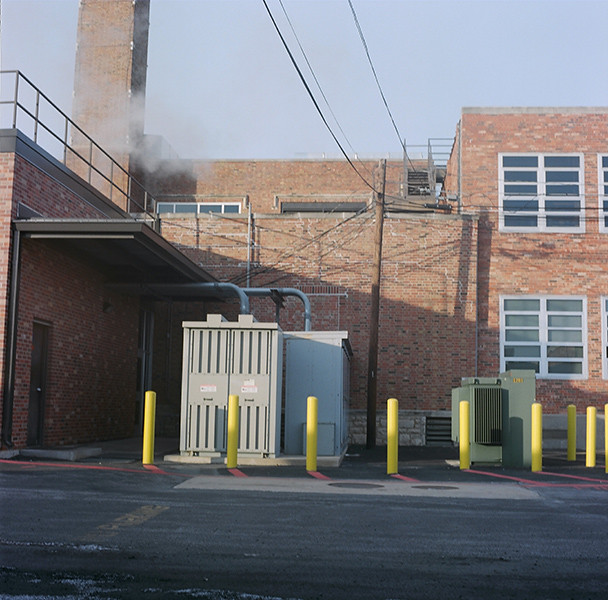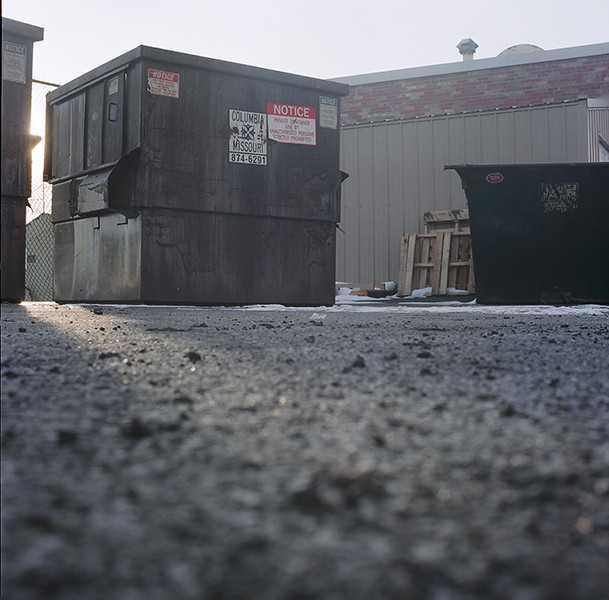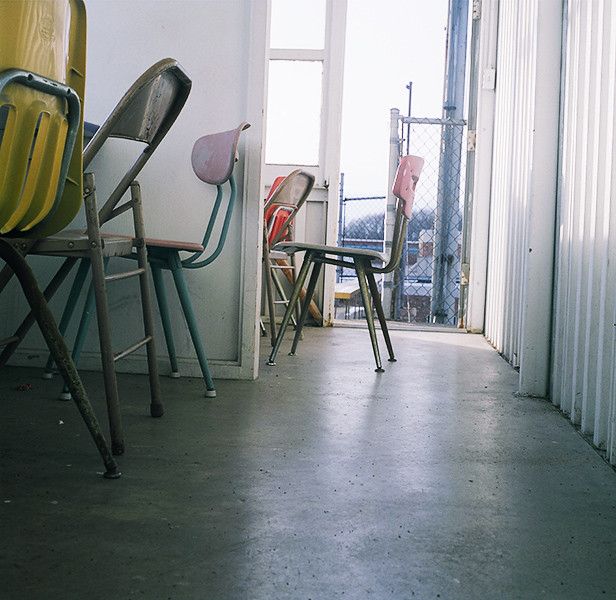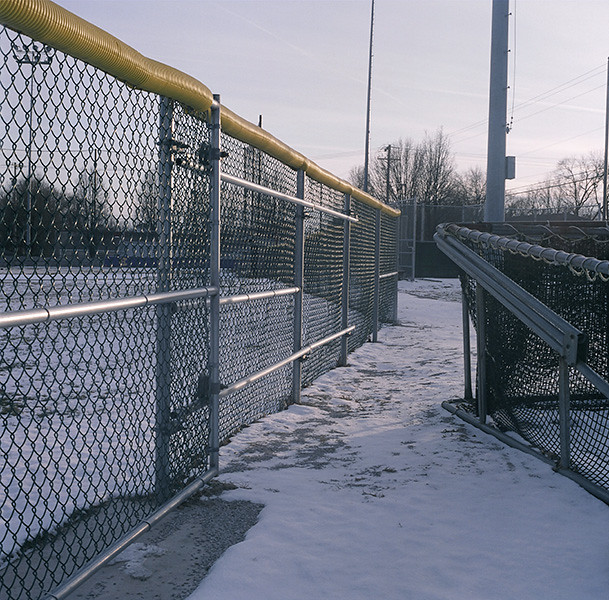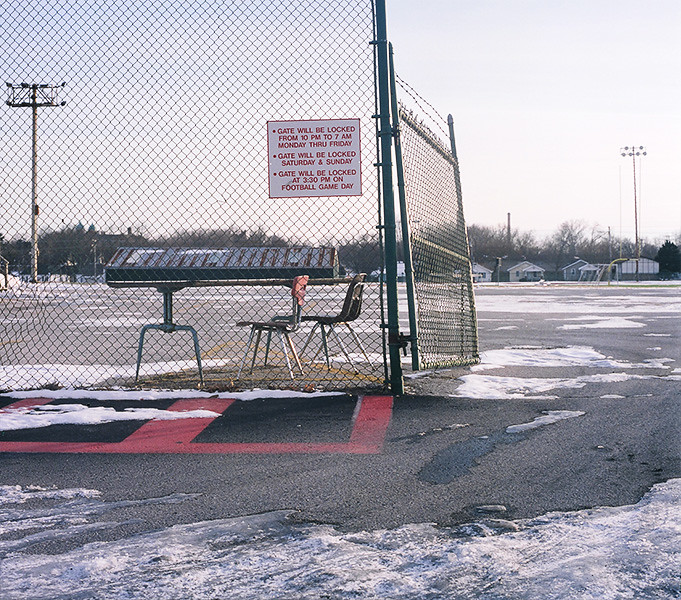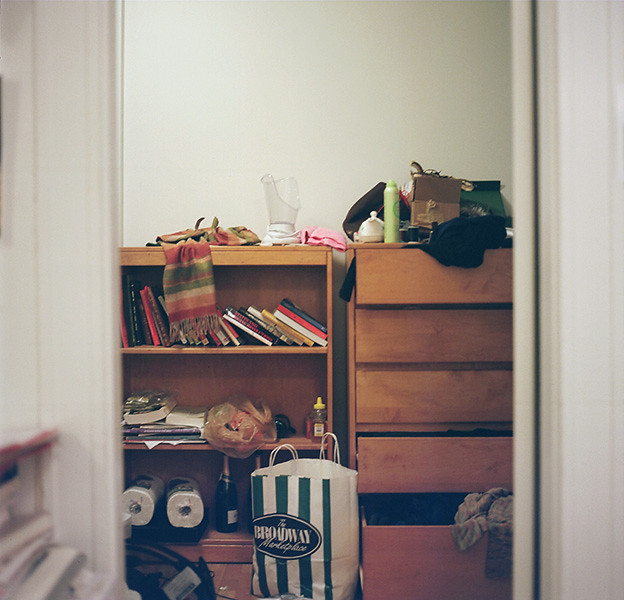
Wednesday, August 25, 2010
another year
Since today I fly back to Cambridge for another year of learning (we'll see how that goes), I figured I'd share a reminder of what my room looked like last year. Maybe I should attempt to grow in maturity level as well, and keep things a little neater. Hm. yeah. nah.


Wednesday, August 18, 2010
triplett, mo




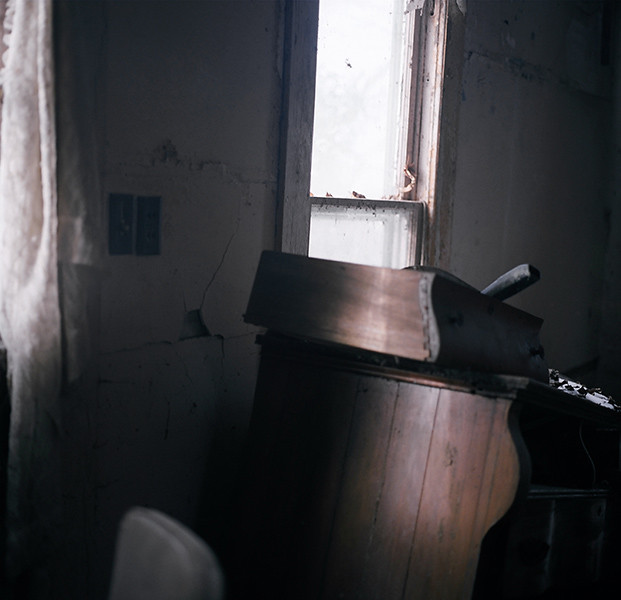
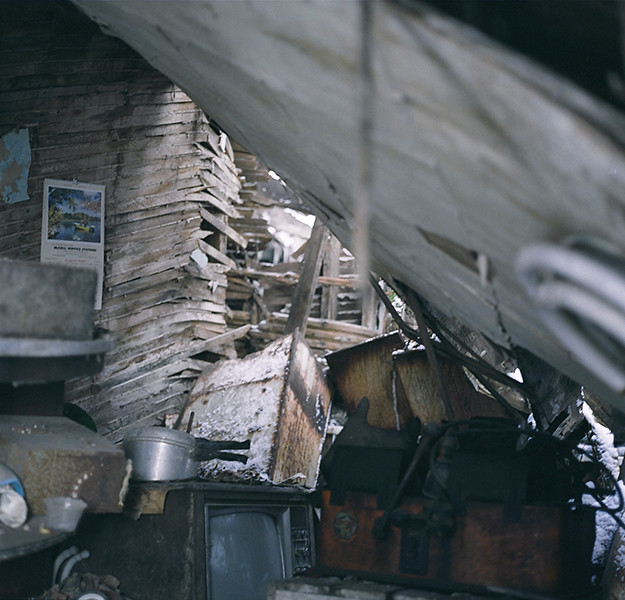
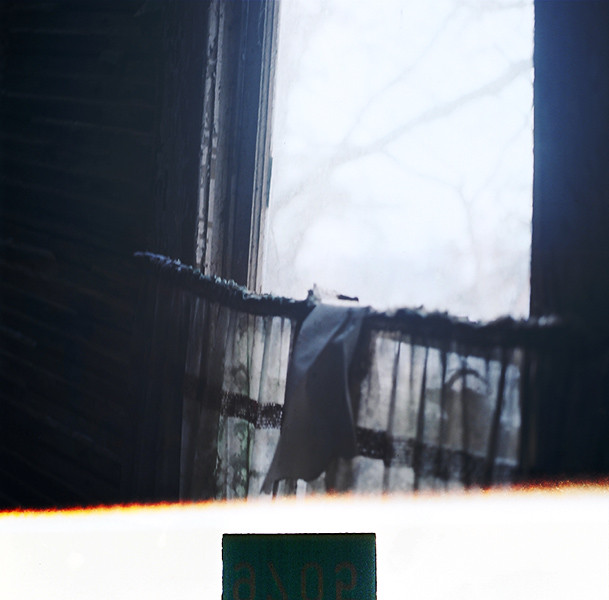
end of the roll
also end of any series of photos from the winter. that's it!
Labels:
interesting things,
on the road,
photography,
travel,
winter
Just say yes / just say there's nothing holding you back
When I traveled to Pittsburg, KS in the winter, I saw this abandoned greyhound racetrack from the side of the highway. It looks like Camptown won't be reopened.
This roll wasn't rolled tightly (my fault!), so you can see the light spilling in around the edges.
 top of the stretch
top of the stretch
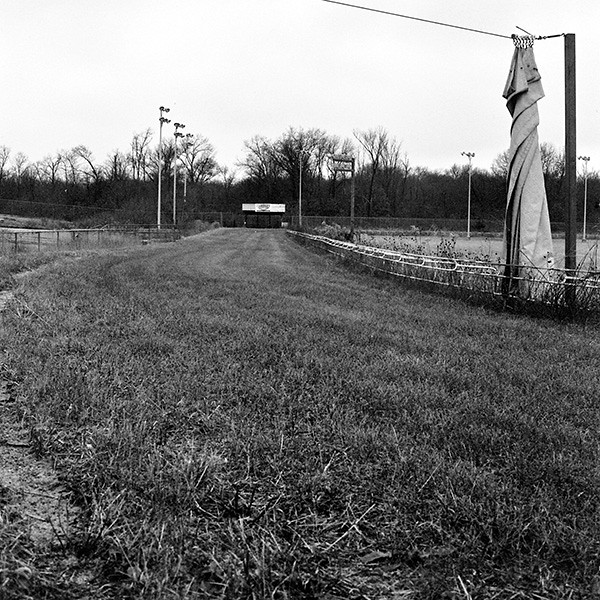 you can see the track is completely overgrown
you can see the track is completely overgrown
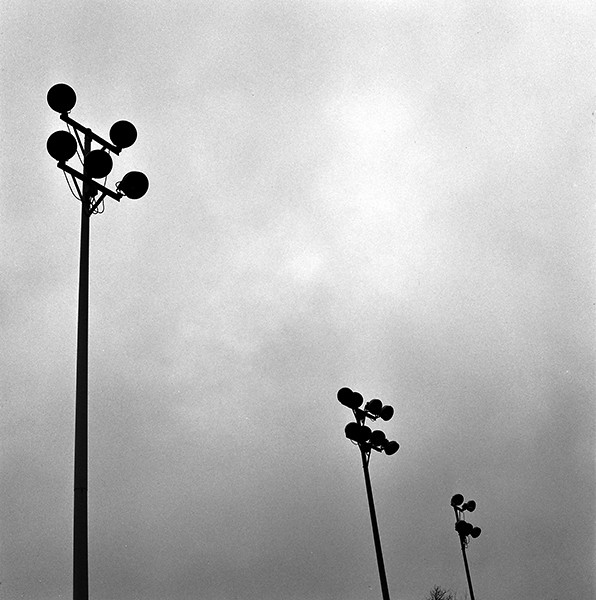
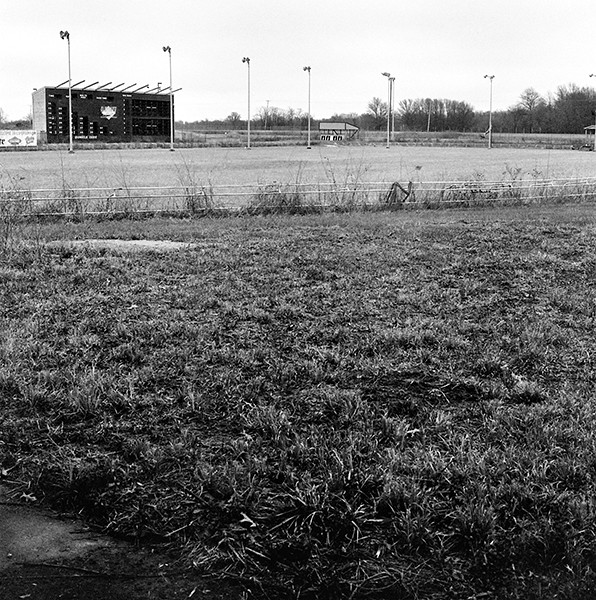
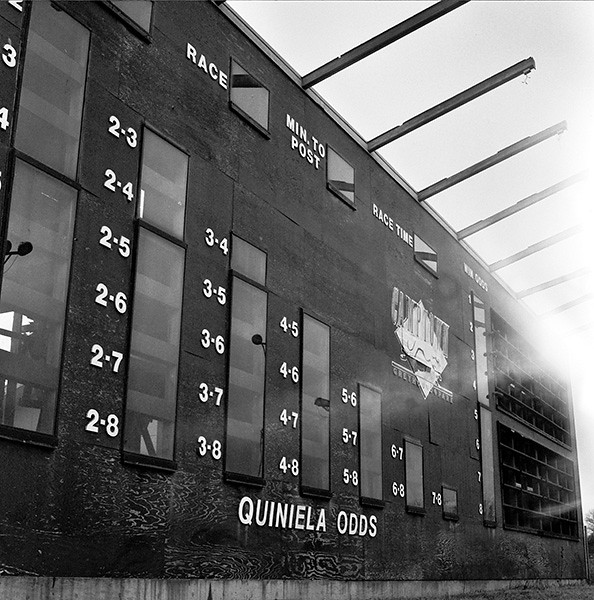

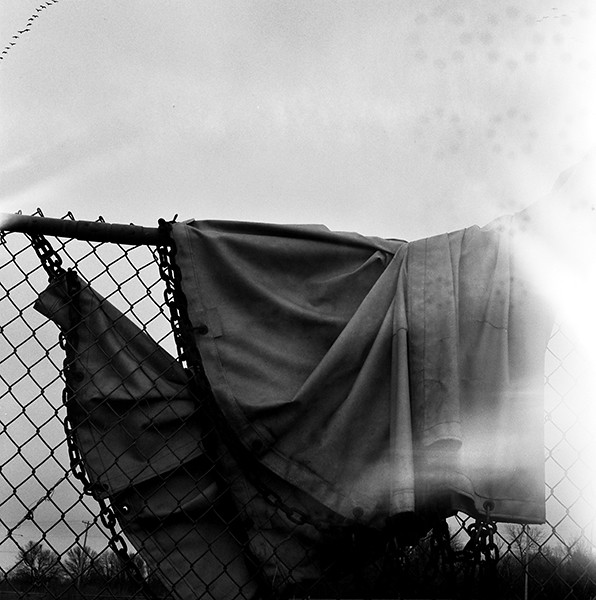
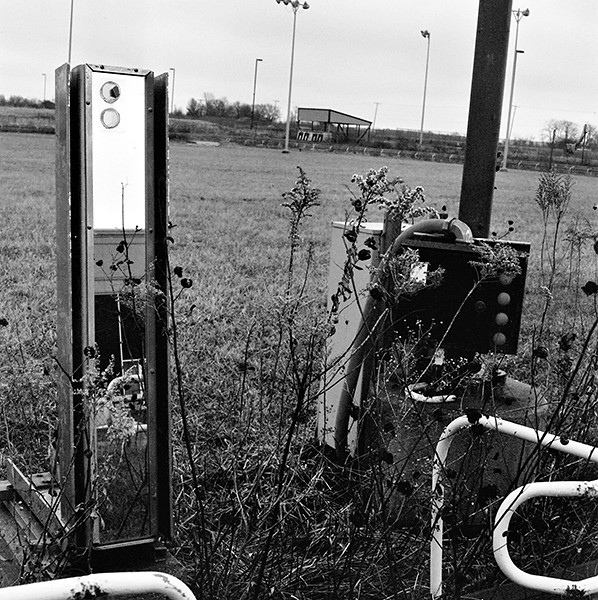 the finish line
the finish line
This roll wasn't rolled tightly (my fault!), so you can see the light spilling in around the edges.
 top of the stretch
top of the stretch you can see the track is completely overgrown
you can see the track is completely overgrown




 the finish line
the finish line
Tuesday, August 17, 2010
and it's so, it's so sad that she don't see what I see
obsessed with this song right now. so catchy!
I just got back 6 rolls of film that I shot back in January. It's been a long time coming. They were the first few rolls I shot with my Hasselblad. it's been so long that I almost forgot to get them developed. More coming soon, but here's one:
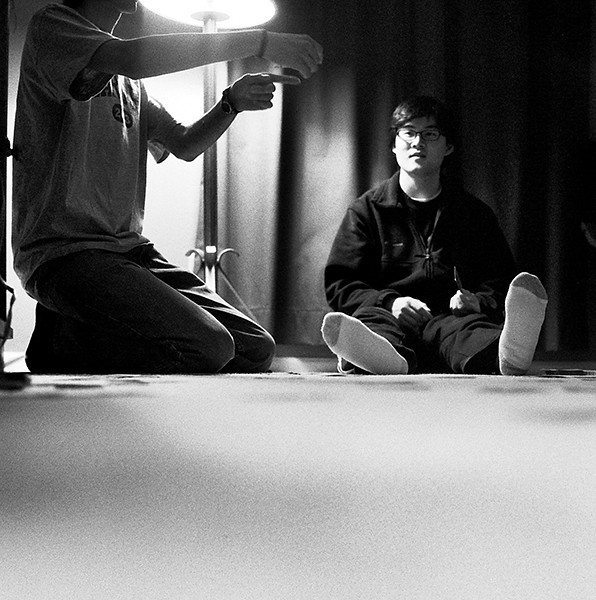
I just got back 6 rolls of film that I shot back in January. It's been a long time coming. They were the first few rolls I shot with my Hasselblad. it's been so long that I almost forgot to get them developed. More coming soon, but here's one:

movies to watch
--at least, ones that I'm excited to watch, no matter the ticket prices in Boston! After a pretty empty summer of films, I have a pretty long list of enticing movies (and two documentaries!) to close out 2010.
BLACK SWAN
Trailer released today. Looks amazing. Natalie Portman and Vincent Cassel, with whom I fell in love in Eastern Promises. And of course, Darren Aronofsky is one of my favorite directors. I was surprised to see Mila Kunis opposing Portman in the trailer--I thought she was the most interesting thing about The Book of Eli.
BLACK SWAN
Trailer released today. Looks amazing. Natalie Portman and Vincent Cassel, with whom I fell in love in Eastern Promises. And of course, Darren Aronofsky is one of my favorite directors. I was surprised to see Mila Kunis opposing Portman in the trailer--I thought she was the most interesting thing about The Book of Eli.
Sunday, August 15, 2010
I am lost, in our rainbow, now our rainbow has gone,
Overcast, by your shadow, as our worlds move on,
But in this shirt, I can be you, to be near you for a while
Labels:
all things queer,
awesome,
lyrics,
music,
underwear
Thursday, August 5, 2010
Toy Story 3 and duty
I saw Toy Story 3 (finally!) on Tuesday.
What a thrilling, emotionally satisfying, beautifully rendered, human film. The conflict that struck me the most was that of duty. (spoilers ahead) In the middle of the film, Woody has to choose between duty to his owner or duty to his friends--duty to the system and tradition versus his duty to the relationships in his life. He can go back to Andy's house to go to college with him, and a life that's safe although useless but to be displayed, as if on a pedestal, or he can attempt to save his friends from certain harm but risk being press-ganged and trapped in the process. If he tries and fails, he is unable to return to Andy, lacking the ways and means to move about and get things done that Andy does.
The similarities between Woody's struggle and the choices that women make in navigating their lives, their politics, and (sometimes) husbands made me sit up and watch this movie with fascination. As the end approached: what would the toys do? To where would they go? And the choice they made in the end--Bonnie's versus Sunnyside, where Barbie stayed! What does that say?
To answer those questions, a little background is in order. As I was a radical, socialist, red state high school feminist, Andrea Dworkin was formative in my thinking. In particular, Right-Wing Women asks the questions: Why do right-wing women agitate for their own subordination? How does the Right, controlled by men, enlist their participation and loyalty? And why do right-wing women truly hate the feminist struggle for equality? Those questions were crowding at my consciousness, and even now, their derivatives come up daily in my thinking. The answer that Dworkin supplies:
Right-wing women understand that their behavior hurt other women, but most importantly, places them on a pedestal for the admiration of one man in particular: their husband. This choice, whether conscious or subconscious, is actually the safe, intelligent choice.
We as an audience are given a look at life with Bonnie that is simple, generous, kind, and loved--her toys adore her, and she clearly has a good heart, having rescued Chuckles (and Woody, too). Having found this paradise once, it should be no surprise that Woody chooses to spirit himself and his friends off to this owner, to this "husband." It's Woody's devotion to Andy, his performance of and commitment to being the perfect toy (the perfect wife) that leads him away from Sunnyside and into Bonnie's home in the first place. And having found the perfect "husband," why waste something good for something that has a reality of being nasty and only the slight potential of reform (Sunnyside)? Rejecting Bonnie is dangerous. It places the toys at the mercy of a larger mechanism than themselves. Sunnyside renders a lot of agency useless, even if there is no master whose every demand needs to be met.
Here, we can look at Sunnyside as a wider society. More specifically, the ease with which it slides into horror and oppression is perfectly represented in the Caterpillar Room, a state which is reinforced not only by Lotso but also a host of other enforcers, all comfortable in their privilege of the Butterfly Room. A woman who rejects the protection of a potential or real husband by refusing to perform the roles of the perfect wife--the cautionary tale of Sunnyside and the Caterpillar Room is her lot.
The reform at the end of Toy Story 3 is really intriguing. It seems that Barbie is able to inspire Ken to give up parts of his privilege in favor of some nebulous form of (more) equality. Barbie seems to be some sort of antebellum social reformer, in the lines of prison reform, temperance, women's suffrage, and abolitionism. Indeed, Sunnyside is a prison, so what she does is nothing other than prison reform. But without Ken's support, his ways and means derived from his authority as a former enforcer, I don't see Barbie accomplishing what she did. Indeed, she would not have been safe enough to implement a lot of these changes if Ken had not defied Lotso--in Barbie's case, then, Ken has taken over part of her ownership in protecting her.
This scenario then calls into question the role of the oppressor in progressive movements and in reform; Toy Story 3 says it can be for the greater good both of a society and to the individuals who find a good, decent protector (or protectress, for Bonnie).
We get the best of both worlds in this movie. Woody's two duties, to his owner(s) and to his friends (the group grows to include the rest of the toys at Sunnyside, with whom Woody and Co. do feel some sort of solidarity), are both fulfilled. Woody and Co. become useful again to Andy by allowing him to pass his beloved toys on, they find a new owner and make themselves fundamentally useful again as toys to be enjoyed, and Barbie stays behind to make sure the Sunnyside toys also get to experience some of the same joy and security that comes from being owned and wanted, but institutionalized.
This ending is why Toy Story 3 remains a children's movie.
Here's what some other people thought this movie said about society (emphasis mine):
---------------------------
Here's a thought and a lovely photo of the day to end this giant post:

(via)
What a thrilling, emotionally satisfying, beautifully rendered, human film. The conflict that struck me the most was that of duty. (spoilers ahead) In the middle of the film, Woody has to choose between duty to his owner or duty to his friends--duty to the system and tradition versus his duty to the relationships in his life. He can go back to Andy's house to go to college with him, and a life that's safe although useless but to be displayed, as if on a pedestal, or he can attempt to save his friends from certain harm but risk being press-ganged and trapped in the process. If he tries and fails, he is unable to return to Andy, lacking the ways and means to move about and get things done that Andy does.
The similarities between Woody's struggle and the choices that women make in navigating their lives, their politics, and (sometimes) husbands made me sit up and watch this movie with fascination. As the end approached: what would the toys do? To where would they go? And the choice they made in the end--Bonnie's versus Sunnyside, where Barbie stayed! What does that say?
To answer those questions, a little background is in order. As I was a radical, socialist, red state high school feminist, Andrea Dworkin was formative in my thinking. In particular, Right-Wing Women asks the questions: Why do right-wing women agitate for their own subordination? How does the Right, controlled by men, enlist their participation and loyalty? And why do right-wing women truly hate the feminist struggle for equality? Those questions were crowding at my consciousness, and even now, their derivatives come up daily in my thinking. The answer that Dworkin supplies:
Right-wing women understand that their behavior hurt other women, but most importantly, places them on a pedestal for the admiration of one man in particular: their husband. This choice, whether conscious or subconscious, is actually the safe, intelligent choice.
We as an audience are given a look at life with Bonnie that is simple, generous, kind, and loved--her toys adore her, and she clearly has a good heart, having rescued Chuckles (and Woody, too). Having found this paradise once, it should be no surprise that Woody chooses to spirit himself and his friends off to this owner, to this "husband." It's Woody's devotion to Andy, his performance of and commitment to being the perfect toy (the perfect wife) that leads him away from Sunnyside and into Bonnie's home in the first place. And having found the perfect "husband," why waste something good for something that has a reality of being nasty and only the slight potential of reform (Sunnyside)? Rejecting Bonnie is dangerous. It places the toys at the mercy of a larger mechanism than themselves. Sunnyside renders a lot of agency useless, even if there is no master whose every demand needs to be met.
Here, we can look at Sunnyside as a wider society. More specifically, the ease with which it slides into horror and oppression is perfectly represented in the Caterpillar Room, a state which is reinforced not only by Lotso but also a host of other enforcers, all comfortable in their privilege of the Butterfly Room. A woman who rejects the protection of a potential or real husband by refusing to perform the roles of the perfect wife--the cautionary tale of Sunnyside and the Caterpillar Room is her lot.
The reform at the end of Toy Story 3 is really intriguing. It seems that Barbie is able to inspire Ken to give up parts of his privilege in favor of some nebulous form of (more) equality. Barbie seems to be some sort of antebellum social reformer, in the lines of prison reform, temperance, women's suffrage, and abolitionism. Indeed, Sunnyside is a prison, so what she does is nothing other than prison reform. But without Ken's support, his ways and means derived from his authority as a former enforcer, I don't see Barbie accomplishing what she did. Indeed, she would not have been safe enough to implement a lot of these changes if Ken had not defied Lotso--in Barbie's case, then, Ken has taken over part of her ownership in protecting her.
This scenario then calls into question the role of the oppressor in progressive movements and in reform; Toy Story 3 says it can be for the greater good both of a society and to the individuals who find a good, decent protector (or protectress, for Bonnie).
We get the best of both worlds in this movie. Woody's two duties, to his owner(s) and to his friends (the group grows to include the rest of the toys at Sunnyside, with whom Woody and Co. do feel some sort of solidarity), are both fulfilled. Woody and Co. become useful again to Andy by allowing him to pass his beloved toys on, they find a new owner and make themselves fundamentally useful again as toys to be enjoyed, and Barbie stays behind to make sure the Sunnyside toys also get to experience some of the same joy and security that comes from being owned and wanted, but institutionalized.
This ending is why Toy Story 3 remains a children's movie.
Here's what some other people thought this movie said about society (emphasis mine):
The film begins with Woody trying to defend a crumbling system of communism (presumably the Soviet Union). Toys have a duty to their owners, he argues. The owner is a personified totalitarian state (Stalin?) — he decides what the toys do and the toys are not permitted to escape....Communism having collapsed, the toys emigrate to Sunnyside (the US, that nation of immigrants), which leader Lotso depicts as a libertarian paradise. In his introductory he speech, he touts the joys of self-ownership and interacting with children through the market (new children are constantly replacing old ones, maximizing the efficiency of the toys), as well as the improved material comforts his system brings (the repair depot, the dream house)....Ken and Barbie now lead Sunnyside, making it a “fun and groovy” socialist utopia. --The Political Philosophy of Toy Story 3
As social commentary, Toy Story 3 is provocative but vague, even unrealized. Lots-o'-Huggin' Bear's torment of Woody's friends by locking them in with the daycare's younger and considerably less kind children suggests something of a slave trade. Their nightmare imprisonment is practically a statement on gentrification, as you get a sense of the rich life Lots-o'-Huggin' and his cronies enjoy being impossible without other, less fortunate toys wasting away in less desirable, impoverished conditions. (There's no "in" for the undesirables, just one way "out": the trash.) The scenario is evocative, suggestive of a New York City street with a Whole Foods and expensive luxury rentals on one side and the projects on the other, but the correlation the film makes to real-life urban gentrification ultimately feels tacky because the way justice comes to Sunnyside has no correlative in Harlem. (slant mag)
But the movie is all about identity and what do you become when everything you knew is gone?....I could go all day about the prison metaphors, the fact that Woody himself was always kind of obsolete as far as toys go, or entertain excessive discourses about Big Baby, the scariest toy in all three Toy Story movies. And then there’s the fact that the Ken doll (Michael Keaton) is one thousand percent gay and no one in the movie (and probably, a good chunk of the audience) has any idea. So I suppose you can add mob mentalities, closet cases, and the like to the list of Pixar’s storytelling devices. (The Faster Times)
The shocking parallels to the Holocaust in Toy Story 3 begin just moments after the opening playtime set piece. Andy is seventeen and about to leave for college. These toys are left behind, just as host nations left behind the Jews as the Third Reich conquered Europe. --Toy Story 3 as Zionist Text
---------------------------
Here's a thought and a lovely photo of the day to end this giant post:
What are the nature of my duties?

(via)
Labels:
editorials,
feminism,
I like to talk a lot,
movies,
review,
whodathunkit
Wednesday, August 4, 2010
Prop 8 declared unconstitutional
From prop 8 trial tracker (emphasis mine):
(Go West) Life is peaceful there
(Go West) In the open air
(Go West) Where the skies are blue
(Go West) This is what we're gonna do
CONCLUSION
Proposition 8 fails to advance any rational basis in singling out gay men and lesbians for denial of a marriage license. Indeed, the evidence shows Proposition 8 does nothing more than enshrine in the California Constitution the notion that opposite-sex couples are superior to same-sex couples. Because California has no interest in discriminating against gay men and lesbians, and because Proposition 8 prevents California from fulfilling its constitutional obligation to provide marriages on an equal basis,the court concludes that Proposition 8 is unconstitutional.
REMEDIES
Plaintiffs have demonstrated by overwhelming evidence that Proposition 8 violates their due process and equal protection rights and that they will continue to suffer these constitutional violations until state officials cease enforcement of Proposition 8. California is able to issue marriage licenses to same-sex couples, as it has already issued 18,000 marriage licenses to same-sex couples and has not suffered any demonstrated harm as a result, see FF 64-66; moreover, California officials have chosen not to defend Proposition 8 in these proceedings.
Because Proposition 8 is unconstitutional under both the Due Process and Equal Protection Clauses, the court orders entry of judgment permanently enjoining its enforcement; prohibiting the official defendants from applying or enforcing Proposition 8 and directing the official defendants that all persons under their control or supervision shall not apply or enforce Proposition 8. The clerk is DIRECTED to enter judgment without bond in favor of plaintiffs and plaintiff-intervenors and against defendants anddefendant-intervenors pursuant to FRCP 58.
IT IS SO ORDERED.
(Go West) Life is peaceful there
(Go West) In the open air
(Go West) Where the skies are blue
(Go West) This is what we're gonna do
you need to breakthrough/ and then get wise to/ all that is taboo/ then you'll be something to see
Shanghai, July 2010








this photo is from the Japanese Industry Pavilion at the 2010 World Expo-- growing a tree without soil.
Subscribe to:
Posts (Atom)
Labels
accessories
(5)
ads
(3)
all things queer
(4)
awesome
(5)
bible
(1)
books
(4)
censorship
(1)
cold
(1)
college application news
(2)
College visits
(1)
computer n00b
(1)
concerts
(1)
Conversations in real life
(3)
design
(2)
editorials
(4)
fall
(4)
fashion
(7)
feathers
(3)
feminism
(5)
finished
(4)
food
(3)
Harvard
(15)
Head of the Charles
(1)
I like to talk a lot
(12)
I'm materialistic
(19)
interesting things
(3)
internet
(3)
interview
(1)
lyrics
(11)
materials
(6)
movies
(15)
music
(9)
national poetry month
(2)
necklace
(6)
ny
(1)
oils
(10)
on the road
(2)
photography
(54)
photography summer
(2)
poetry
(8)
process
(23)
quotes
(2)
review
(2)
school
(7)
science
(1)
sex
(1)
shoes
(3)
sketch
(1)
snow
(2)
spring is here
(1)
Stereotypes
(2)
street style
(1)
summer plans
(4)
travel
(10)
tv
(2)
twitter
(1)
underwear
(4)
veritaffle
(1)
what happened today
(14)
whodathunkit
(10)
why I hate living in the middle of nowhere USA
(3)
why nowhere USA is kind of cool
(2)
winter
(3)
Links
Blog Archive
-
▼
2010
(53)
-
▼
August
(11)
- another year
- triplett, mo
- columbia, mo
- one last addendum--
- Just say yes / just say there's nothing holding yo...
- and it's so, it's so sad that she don't see what I...
- movies to watch
- I am lost, in our rainbow, now our rainbow has g...
- Toy Story 3 and duty
- Prop 8 declared unconstitutional
- you need to breakthrough/ and then get wise to/ al...
-
▼
August
(11)
